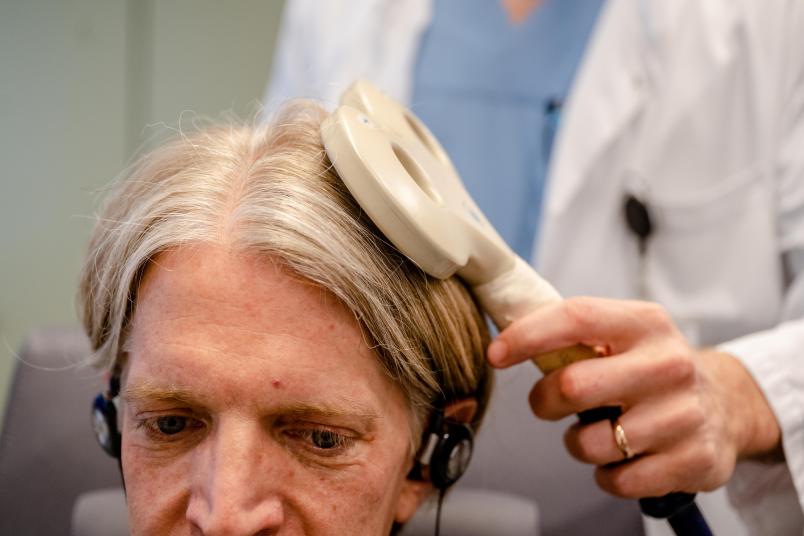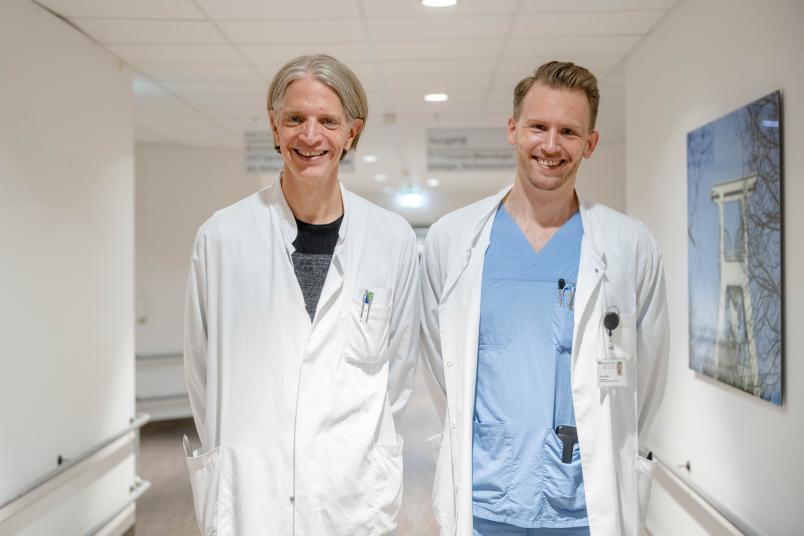Neuroscience
Effects of brain stimulation amenable to conditioning
Conditioning that once worked with Pavlov’s dog does also work with an artificially induced change in nerve cell activity.
Researchers at Ruhr University Bochum, Germany, have successfully implemented a special form of classical conditioning. They showed on a group of 75 people that effects of transcranial magnetic stimulation (TMS) can be triggered solely by listening to a tone. Professor Burkhard Pleger from the Neurology Department at Berufsgenossenschaftliches Universitätsklinikum Bergmannsheil describes the results together with the medical doctoral students Stefan Ewers and Timo Dreier and other colleagues in the journal “Scientific Reports”, published online on 16 April 2023.
Magnetic stimulation triggers contraction of the thumb muscle
To perform TMS, a magnetic coil is placed externally over a specific part of the brain. The strong magnetic field stimulates the underlying nerve cells to become active. If a certain area of the motor cortex is stimulated in this way, the index finger or thumb, for example, will move. For their research, the Bochum-based team used the so-called paired-pulse transcranial magnetic stimulation (TMS). This involved two TMS stimuli spaced twelve milliseconds apart, which leads to a stronger contraction of a muscle than a single TMS. In the conditioning phase, the researchers always combined this paired-pulse TMS with a tone that the participants heard via headphones while the TMS was applied.
Conditioned tone intensifies muscle contraction
In the test phase, the participants were no longer exposed to double TMS, but only to a single TMS pulse – paired either with the conditioned tone or with a tone that the participants hadn’t heard before. At the same time, the researchers once again measured the intensity of the muscle contraction on the thumb: it was significantly stronger when the participants listened to the conditioned tone, as opposed to the tone that they hadn’t heard during conditioning.
Conditioning could be useful for therapeutic applications
“Our basic research proves that traditional conditioning works not only with conscious behaviour patterns,” concludes Burkhard Pleger. “Brain activity can also be conditioned when manipulated through external brain stimulation.” This is interesting, because TMS can also be used as a therapeutic approach, for example to improve the mobility of people with Parkinson’s disease or to treat depression. “Generally, the effects of TMS are only temporary. They disappear if the stimulation is not continued. If these effects could be maintained by conditioned tones, therapy could become much more straightforward,” as Pleger describes one possible benefit of the research.

